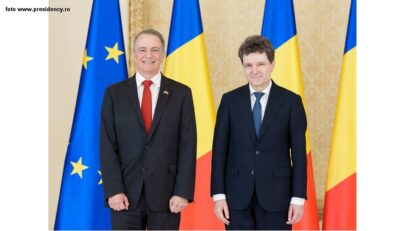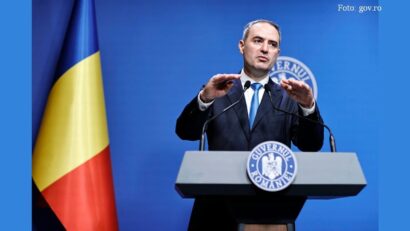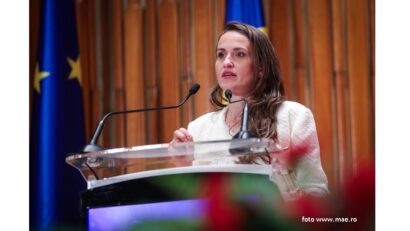New calls for vaccination
Romanian authorities call on religious denominations to help step up the vaccine rollout

Daniela Budu, 03.12.2021, 13:50
The COVID-19 pandemic has stayed on a
downward trend in Romania for several weeks. Both the number of new cases, and
the number of patients in hospitals and of fatalities have been decreasing.
In this context, interest in vaccination is also decreasing: numbers are
now significantly below the daily average of 16,000 people who got their first
dose of the vaccine last week.
Nearly a year since the start of the vaccine roll-out, some 7.5 million
Romanians are fully vaccinated, which is much less than half the eligible
population of over 12 years of age.
The coordinator of the national vaccination programme, Valeriu
Gheorghiţă, hopes however that a vaccination rate of at least 50% will be
reached by the end of the year.
Meanwhile, Romanian authorities once again urge people to get vaccinated
and to observe protection measures. The PM Nicolae Ciucă and the new health
minister, Alexandru Rafila, have called for support for vaccination from
religious denominations. They also discussed with local religious leaders about
introducing the digital certificate as a prerequisite for access to churches
and other places of worship.
In turn, the representatives of various religious denominations
requested that citizens be allowed to take part in religious services without a
digital certificate. PM Nicolae Ciucă promised that a decision will be made by
the end of the month.
Nicolae Ciucă: We had talks and representatives of
religious denominations requested that citizens be free to attend religious services
without a compulsory digital certificate. We asked religious officials to help us
save as many lives as possible.
In turn, Alexandru Rafila believes people should attend religious
services without being required to have a COVID certificate, because religious freedom
is essential.
Alexandru Rafila: I believe this is ultimately a
political decision, and that it should be made within a consultative and
inclusive mechanism, rather than as a discretionary policy. It should be a
decision which is known, understood and observed by everybody, and religious
freedom is one of the essential elements. We cannot speak about this in the same
terms as access to essential shops, let’s say. We believe access to religious
services should take this into account.
As for making vaccination compulsory, as discussed by some European
Commission representatives, Alexandru Rafila believes each member state is
entitled to have its own public health policies. (tr. A.M. Popescu)






























